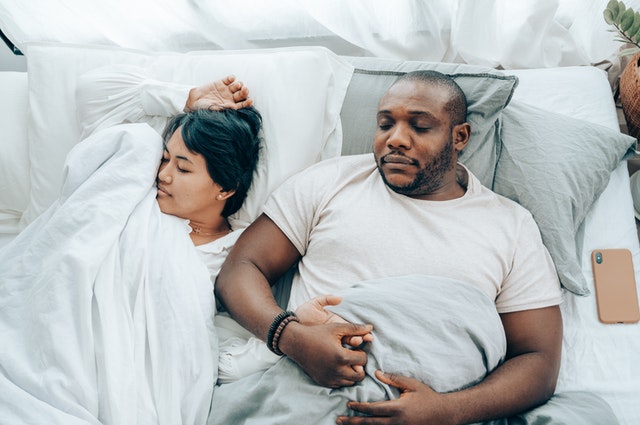
When it comes to being healthy, diet and exercise play important roles. However, too often we limit our thinking about health to these factors. Sleep plays a crucial role in overall health, and it can affect your fitness and athletic ability as well.
How Sleep Affects Health
According to the US Centers for Disease Control and Prevention (CDC), lack of sleep is tied to many health problems. Inadequate sleep can increase the risk of developing such conditions as type 2 diabetes, heart disease, obesity, and depression. Lack of sleep can also cause work injuries and traffic crashes.
Other researchers have discovered additional health consequences of inadequate sleep. For example, US National Institutes of Health (NIH) research has suggested that stroke and dementia may be related to lack of sleep. Because of these negative effects to overall health, getting enough sleep is essential.
How Sleep Affects Fitness
In addition to overall health, sleep can affect fitness. According to researchers in the Harvard Medical School Division of Sleep Medicine, sleep is required for the body to repair the damages done to it daily. These repairs include fixes to almost every body part, including the tiniest cells, the Harvard researchers have explained. In fact, they’ve noted that tissue repair and muscle growth occur primarily during sleep. Getting enough sleep is therefore crucial for muscle strength and performance.
In addition, scholars who wrote a research paper in the Journal of Pediatric Orthopedics showed that inadequate sleep led to higher numbers of injuries among athletes. They found those who got fewer than eight hours of sleep each night were more likely to suffer an injury than those who slept eight or more hours each night. Such injuries can mean time away from training, and getting enough sleep is an easy way to avoid this situation.
A Growing Understanding in Popular Culture
Over the past decade or so, the scientific research on sleep has trickled down to popular culture. Decades ago, not getting enough sleep might have been seen as a sign of strength, toughness, or admirable work ethic. Not so anymore. For example, Arianna Huffington, founder of the Huffington Post, has published an entire book devoted to the topic. She has also given a TED talk on the subject, in which she emphasized the role sleep can play in success and happiness.
Actor and lifestyle guru Gwyneth Paltrow similarly believes in the importance of sleep—she uses the term “clean sleeping” to refer to sleep hygiene and has said she believes sleep is even more important than diet when it comes to her energy levels. Sheryl Sandberg, COO of Facebook, once told the press that if she could give one piece of advice to her younger self, it would be to stop skipping sleep in order to work more. Carson Daly of the TODAY Show has revealed that good sleep is so important to him that he and his wife sleep separately at night. And Tobi Lutke, founder of the e-commerce site Shopify, took to Twitter to proclaim the importance of eight hours of sleep to his routine.
Suggestions for Getting Better Sleep
It’s clear that sleep is essential for health and fitness, but how can you get better sleep? Several sources offer suggestions. The National Sleep Foundation, a nonprofit organization focused on promoting healthy sleep, lists several tips on its website in the form of the acronym SLEEP:
- S – Establish a structure for sleep with set times for sleeping and waking.
- L – Get enough natural light during the day.
- E – Limit electronic use at nighttime
- E – Get adequate exercise.
- P – Make good sleep a priority.
The NIH echoes these suggestions. Its additional tips include avoiding caffeine and nicotine, skipping naps, eliminating alcohol and large meals before bed, creating a sleeping environment that is dark and cool, getting out of bed if sleep does not come quickly, and seeking medical help for sleep problems. The NIH also clarifies that adults should strive for at least seven hours of sleep each night. In addition, you shouldn’t rely on the weekends to “catch up” on a sleep deficit—don’t skip sleep during the week, figuring you can sleep in on Saturday and make up those lost hours. Instead, consistent sleep every night is key.
Becoming a Sleep Role Model
If you are serious about achieving your fitness potential you need to make sleep a priority.
The days of being admired for running ourselves ragged by working long hours are gone. Instead, those who make getting adequate sleep a priority are now admired—and they’re more likely to be focused, present, and effective at work. Such a development is long overdue for achieving overall health and fitness.
